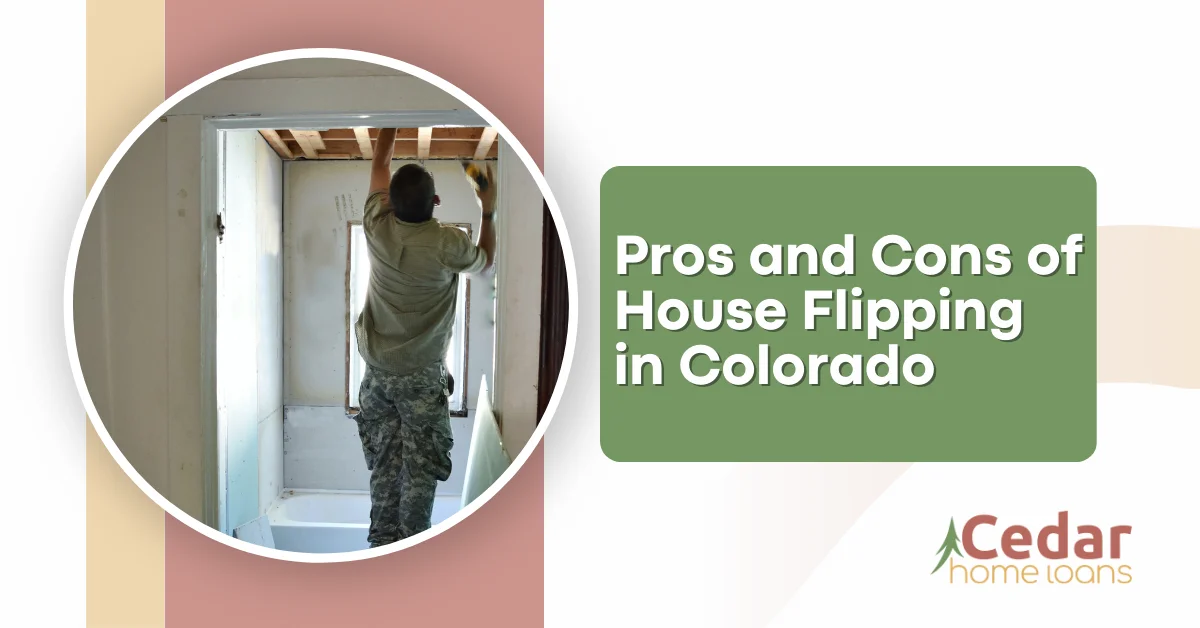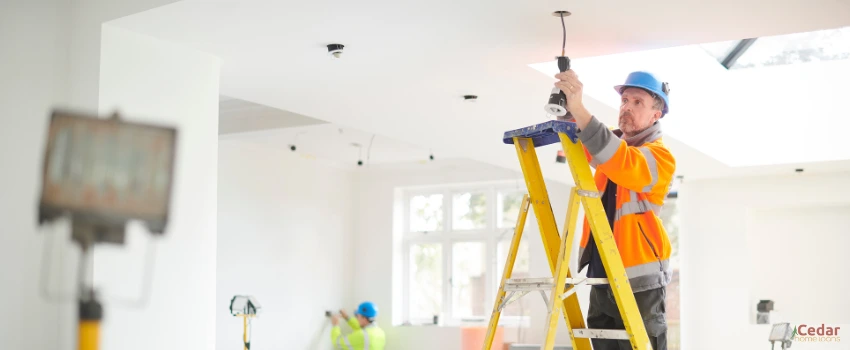The population of Colorado increased by over 15% over the past decade, as reported by the Colorado 2021 census. Colorado’s progressive legislation, magnificent natural beauty, and availability of outdoor activities contribute to the state’s high quality of life. This high quality of life makes the Centennial State appeal to retirees, families, and those looking for new experiences.
It’s natural for a house flipper to have questions about the best cities for flipping houses. Typically they will ask questions like, what is the housing market like in a particular area, and can I make a living doing “house flipping” in Colorado? This article will give you a rundown of the Colorado real estate market and provide some pointers on how to make a profit flipping houses in Colorado.
What Is House Flipping
The term “house flipping” refers to purchasing a house and then quickly reselling it for a profit. Generally, this will involve the initial purchase, renovation and repairs, then reselling. The house purchaser accounts for the initial purchasing price and the cost of any repairs and estimates if the resale price will cover these and return a profit. Flipping houses in Colorado is based on the premise that the buyer can make a significant profit in a relatively short period.
The buyer intends to swiftly resell the property after making necessary repairs rather than live in it. People often ask is flipping houses profitable? And the answer is yes, if you know what you are doing. Typically investors will seek out rundown houses that are being sold at auction, or are in the foreclosure process, and can be purchased at a lesser price. They will then conduct the necessary repairs and renovations to increase the property value and quickly resell it for a profit.
Standard Cost To Flip a House in Colorado
The typical cost to flip a house for a seller is 10% of the buying price. Expenditures for contractors, electricians, plumbers, real estate agents, and so forth are all factored into the total. Here are some of the expenses you’ll incur during the house flip:
- Home purchase price
- Cost of repairs
- Local property taxes
- Utility cost
- Expenses for reselling the property
- Sale closing costs
Pros of Flipping Houses
1. High Profit
There is a lot of money to be made in the home flipping business. The primary motivation for most house flippers is financial gain. If you’re interested in getting into real estate investment on the side, flipping houses is a fantastic method to get you started.
2. Networking Opportunities
Establish professional connections with people in the real estate industry, such as motivated sellers, contractors, lenders, agents, and lawyers. Networking opportunities abound at real estate investor events like seminars, auctions, and conferences.
3. Great Career Potential
You can turn house flipping into a full-time profession with hard work and dedication. House-flipping can be done effectively as a full-time business venture if the prospective investor can network and assemble a competent team.
4. Full Control
Due to the high degree of autonomy they enjoy, house flippers shoulder a great deal of responsibility. To a large extent, house flippers are free to make any decisions they see fit. They have complete control over how long a project takes and how much work is involved, and they control spending.
Cons of House Flipping
1. Unexpected Expenses
Unanticipated costs are inevitable when flipping a house. Due to their lack of knowledge, first-time house flippers typically encounter unseen maintenance costs and spend more money than budgeted. Experienced house flippers will usually conduct a thorough house inspection before purchase. A house inspection before purchase will reveal the potential problem areas and save you from incurring unexpected costs.
2. Possibilities of Legal Problems
Dealing with legal issues is time-consuming and costly, and they are the last thing a person flipping a house wants to encounter. To avoid legal trouble and ownership disputes, conduct a home title check.
3. Expenses To Maintain a Property
Even home flippers must keep up with the costs of owning a home. Investors in the real estate flipping business that keep a property for an extended period incur significant costs because of their ownership.
4. Repairs Impact Home Value
Structural problems not only negatively effect the value of a house, they also cost money to repair. The cost of repairing structural defects will usually be factored into the resale price, and the higher the price, the more difficult it is to flip a house.
House Flipping Mistakes You Should Not Make
1. Did not have enough funds.
One of the most common rookie mistakes is inadequate financial preparation. When flipping a house, there will likely be unexpected repair costs. To prepare for these unexpected costs, ensure you have ready access to emergency funds such as mortgage loans and financing.
2. Did not plan thoroughly.
Flipping is not possible without careful preparation and precise execution. When learning to flip houses, beginners often neglect to consider the potential downsides. When flipping a house, it’s crucial to do your homework, build relationships with experts in the field and formulate a comprehensive plan.
3. Failed to invest in a competent team.
It won’t be easy to finish a house flipping project if the real estate specialists, contractors, plumbers, and other people working on the project are unskilled and do not work together well. You can save time, effort, and money by investing in a team of skilled professionals who have the necessary experience and work well together.
4. Did not assess the property well.
If you want to acquire a house that can be quickly repaired, fixed, and flipped for a profit, you should thoroughly inspect it before you commit to buying it. For a foreclosed home to be valuable, it must require fewer repairs than comparable properties.
Key Takeaway
House flipping in Colorado can be an excellent and lucrative investment. However, as with any other business, diving headfirst into it without first doing your homework, is like going into battle unprepared. Before engaging in house flipping you should be aware of all the pros and cons associated with this otherwise profitable business venture. Before flipping a house, make sure you have sufficient funds, have a comprehensive plan, are partnering with a team of professionals and have conducted a thorough inspection of the property.
Explore the world of house flipping with Cedar Home Loans.
House flipping in Colorado can be a lucrative business. It facilitates the repair, renovation and selling of foreclosed homes by motivated vendors and savvy purchasers. The team at Cedar Home Loans, a trusted company that offers Frisco home loans, is composed of loan experts with extensive local knowledge of the real estate market in Colorado. If you are flipping a house in Colorado and need financing, contact us now. Our local knowledge and home loan experts will be the key to your real estate success.





